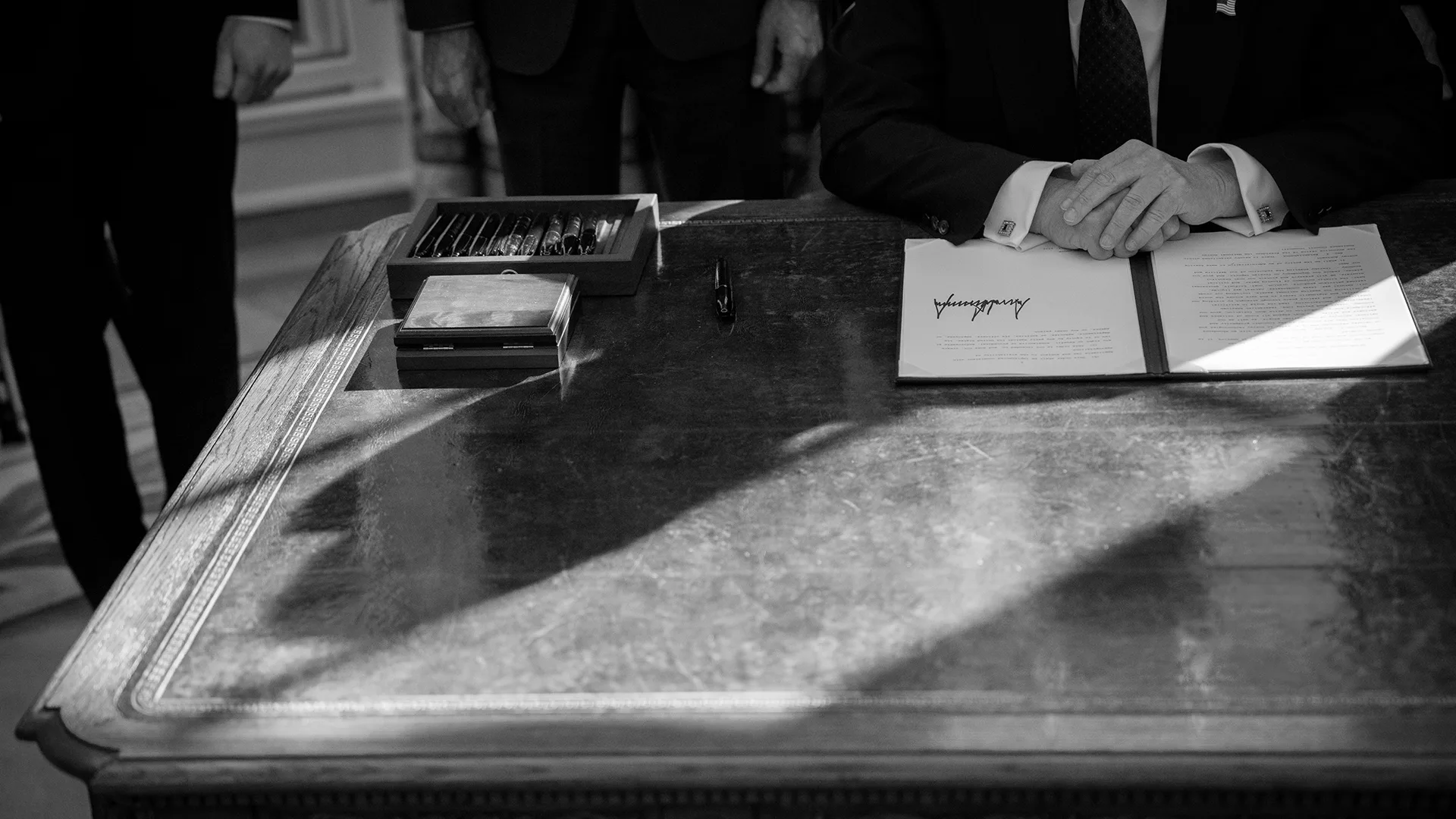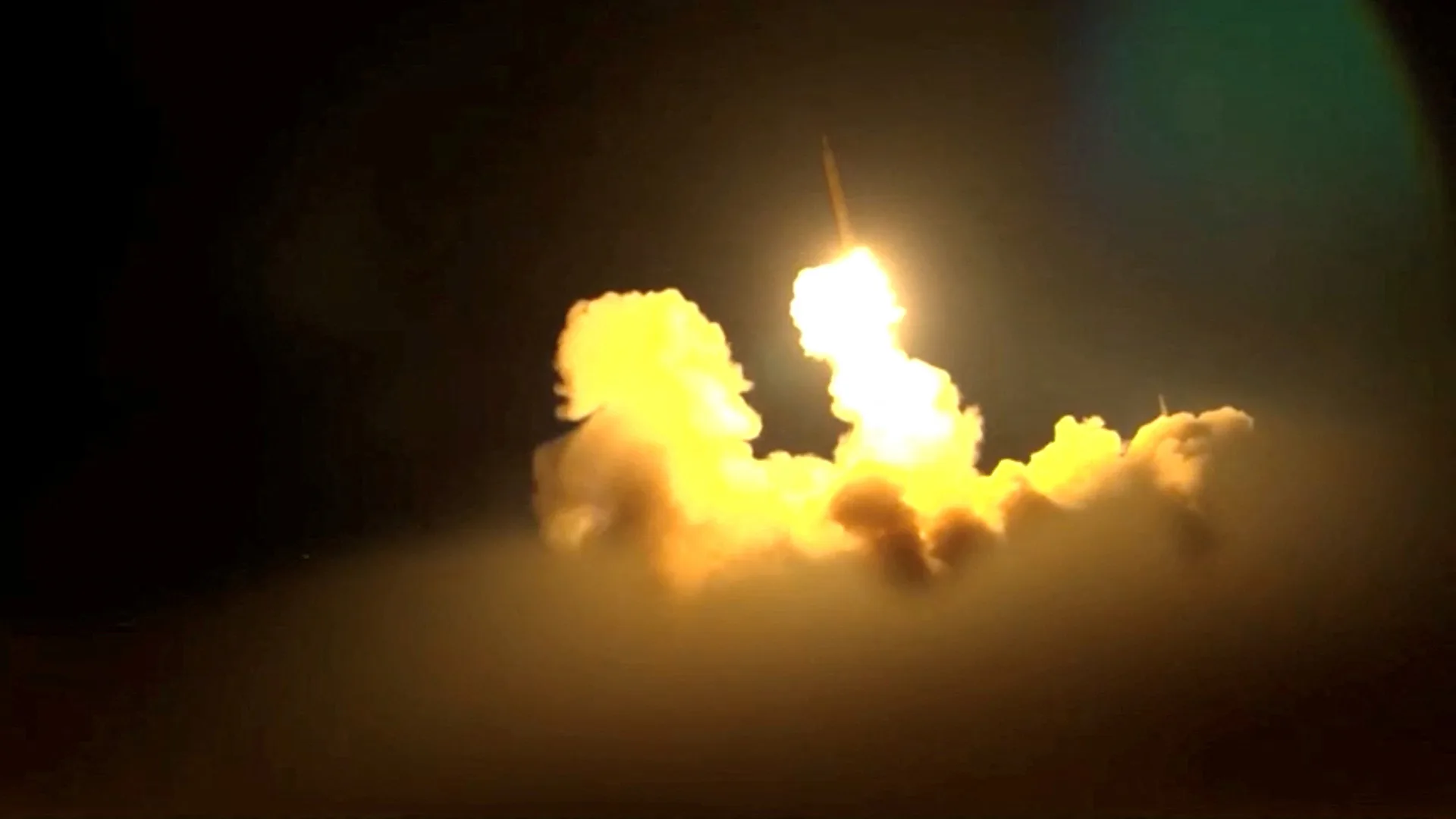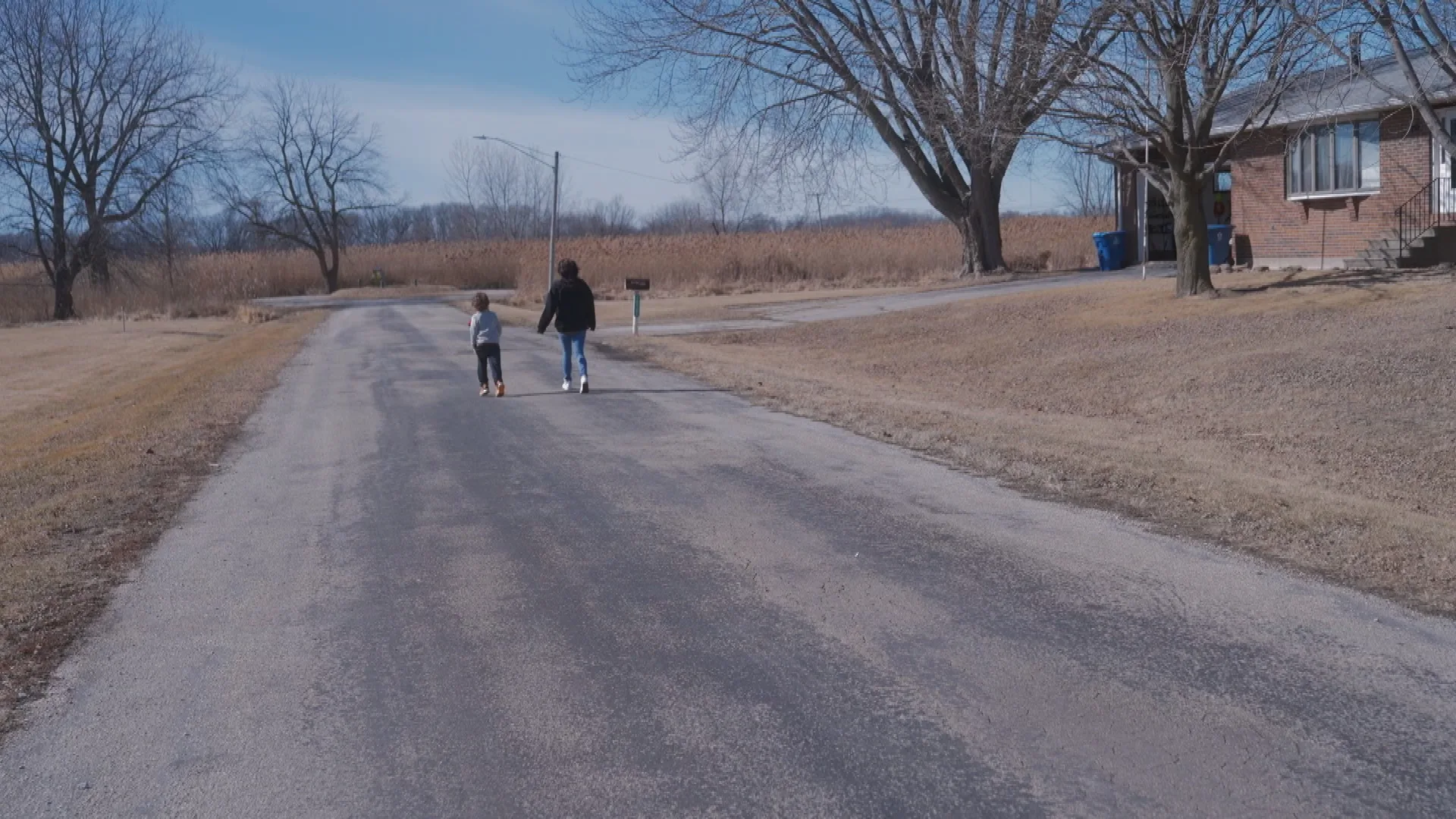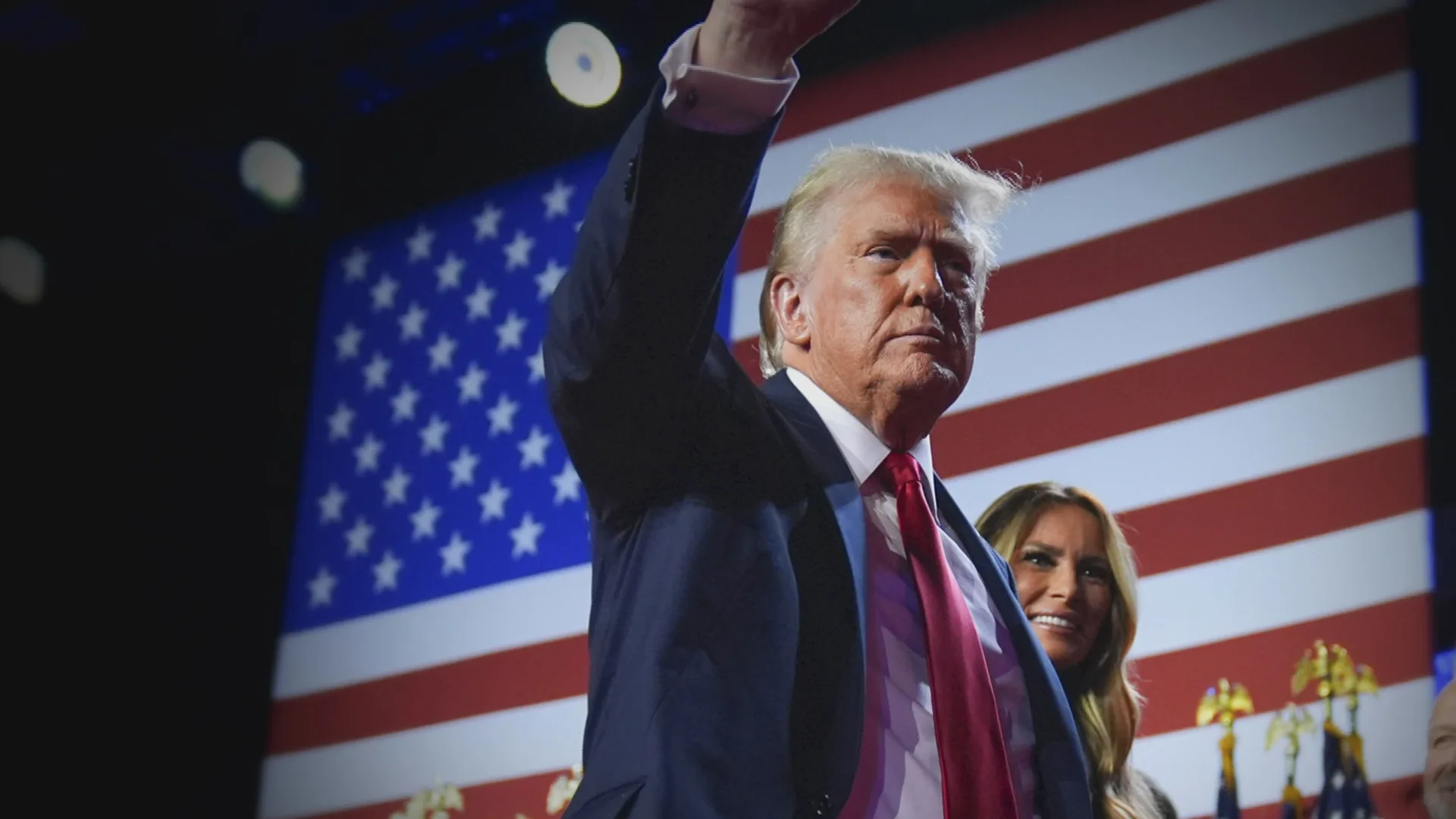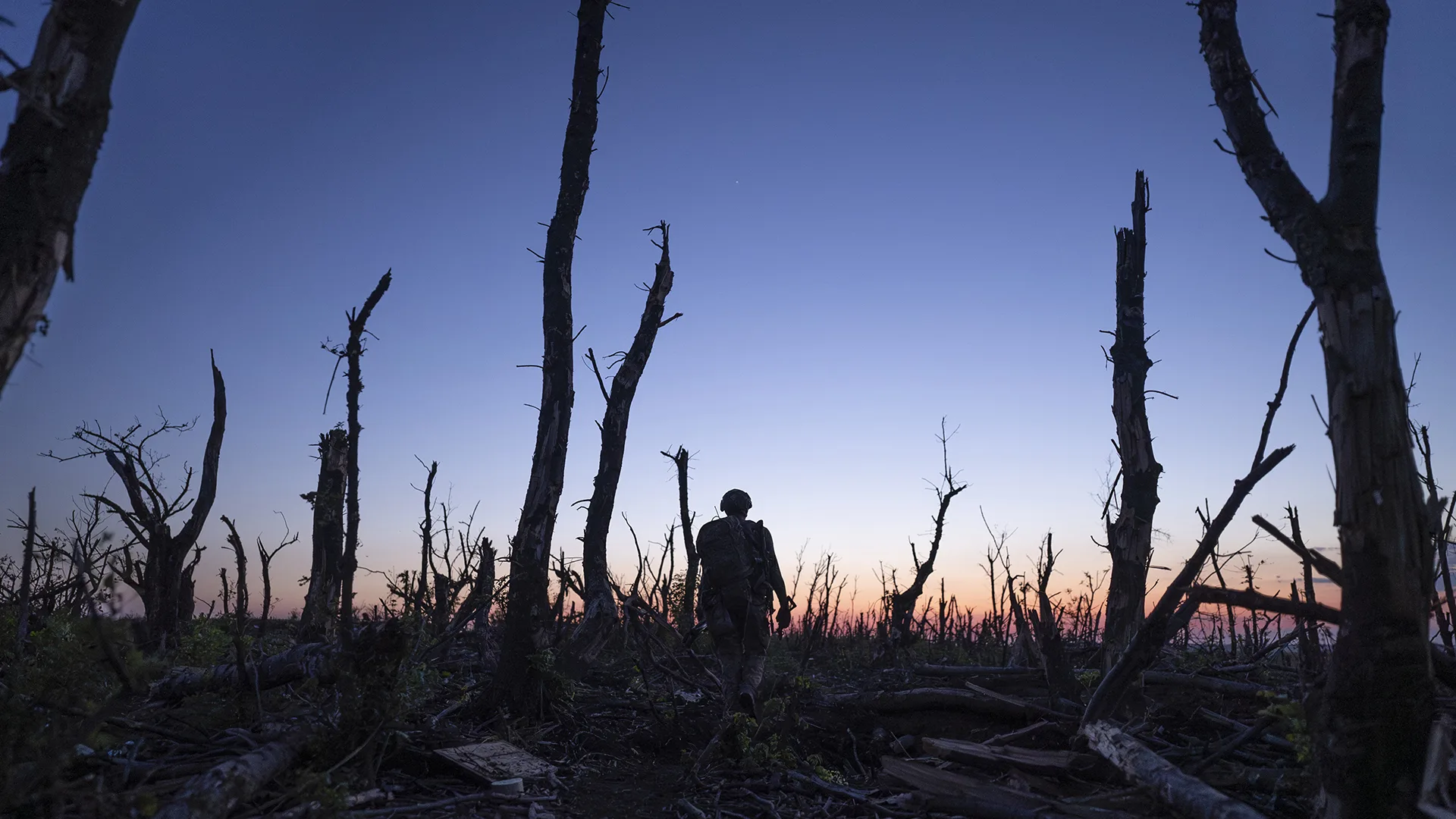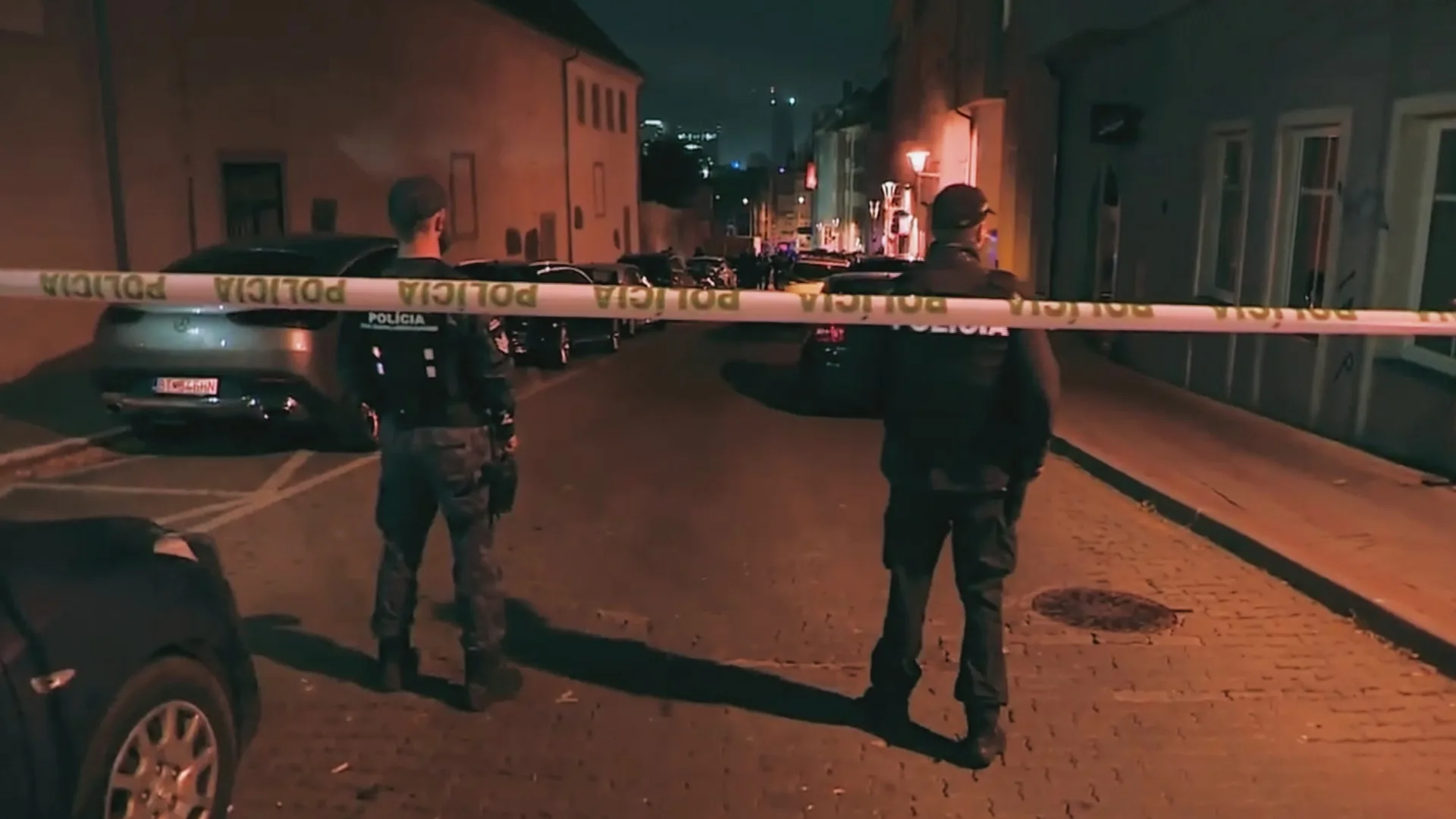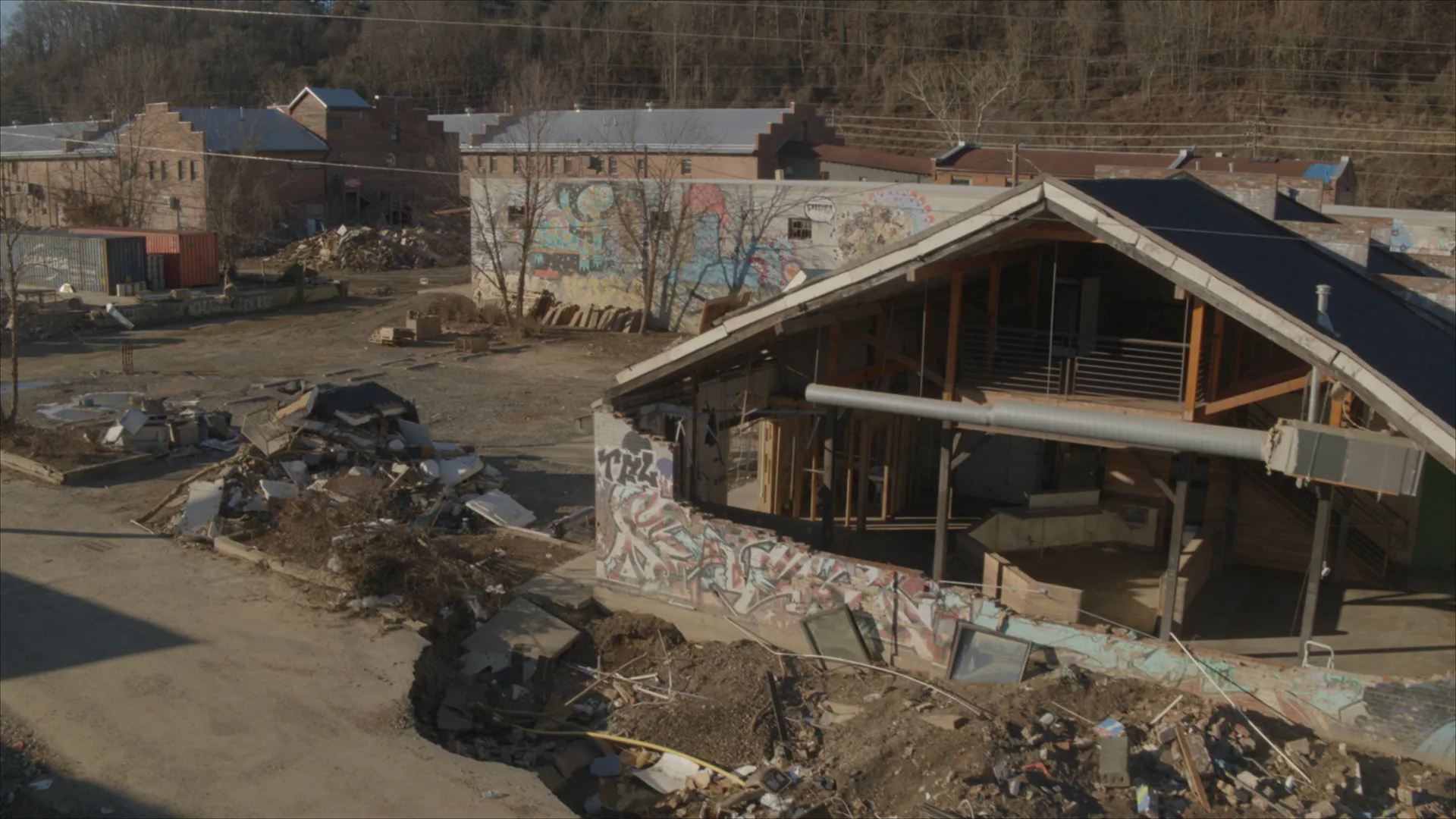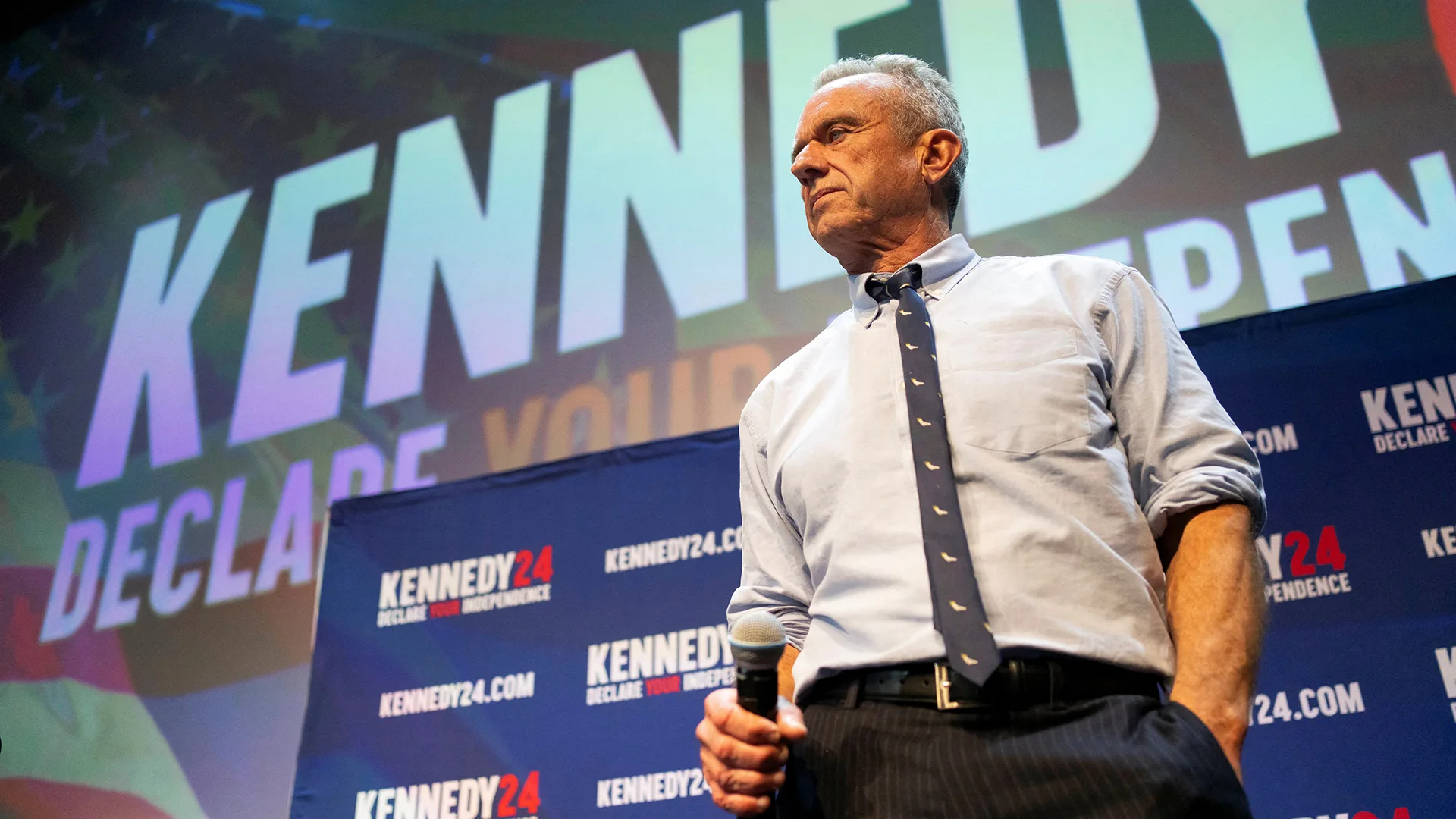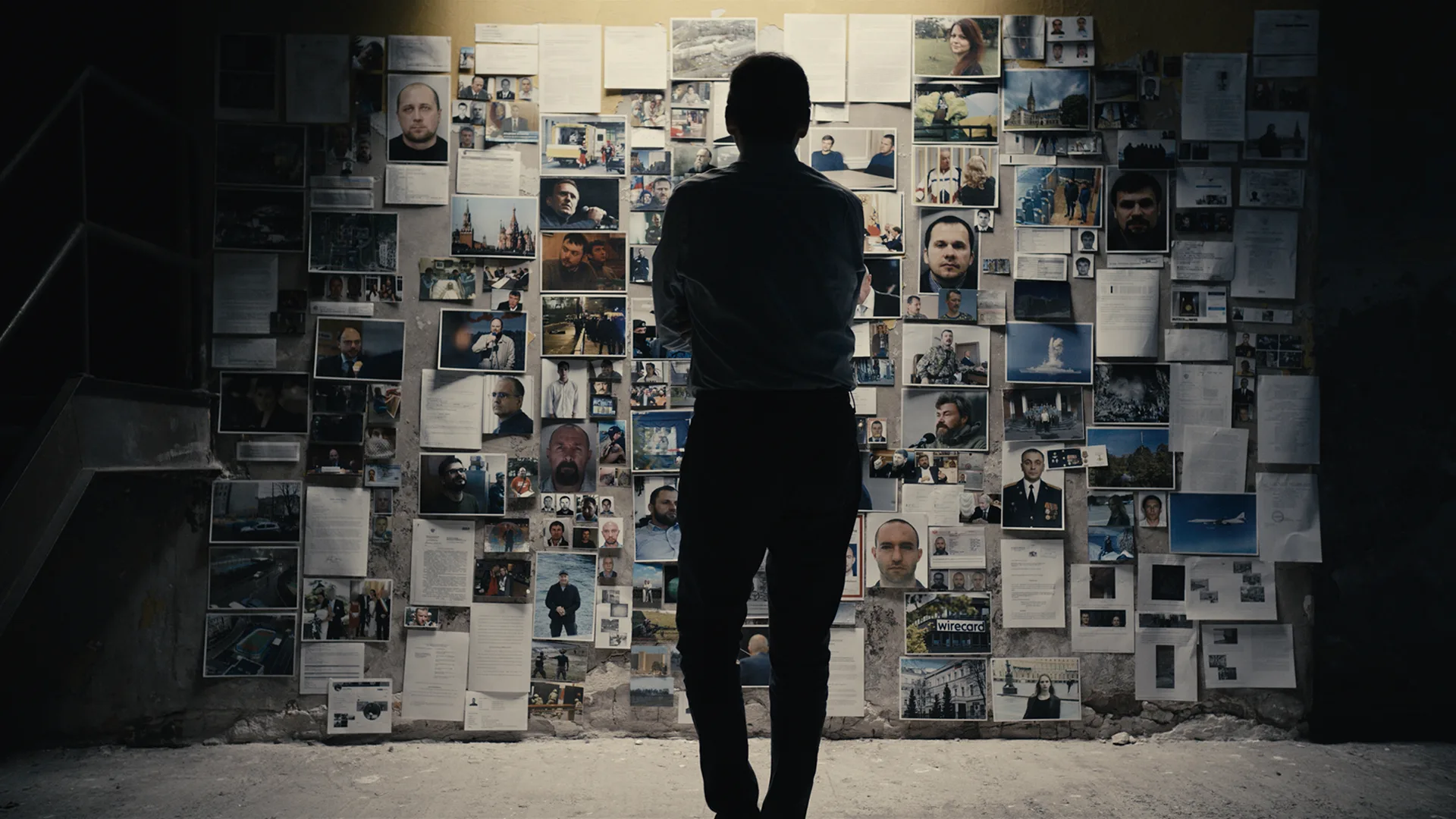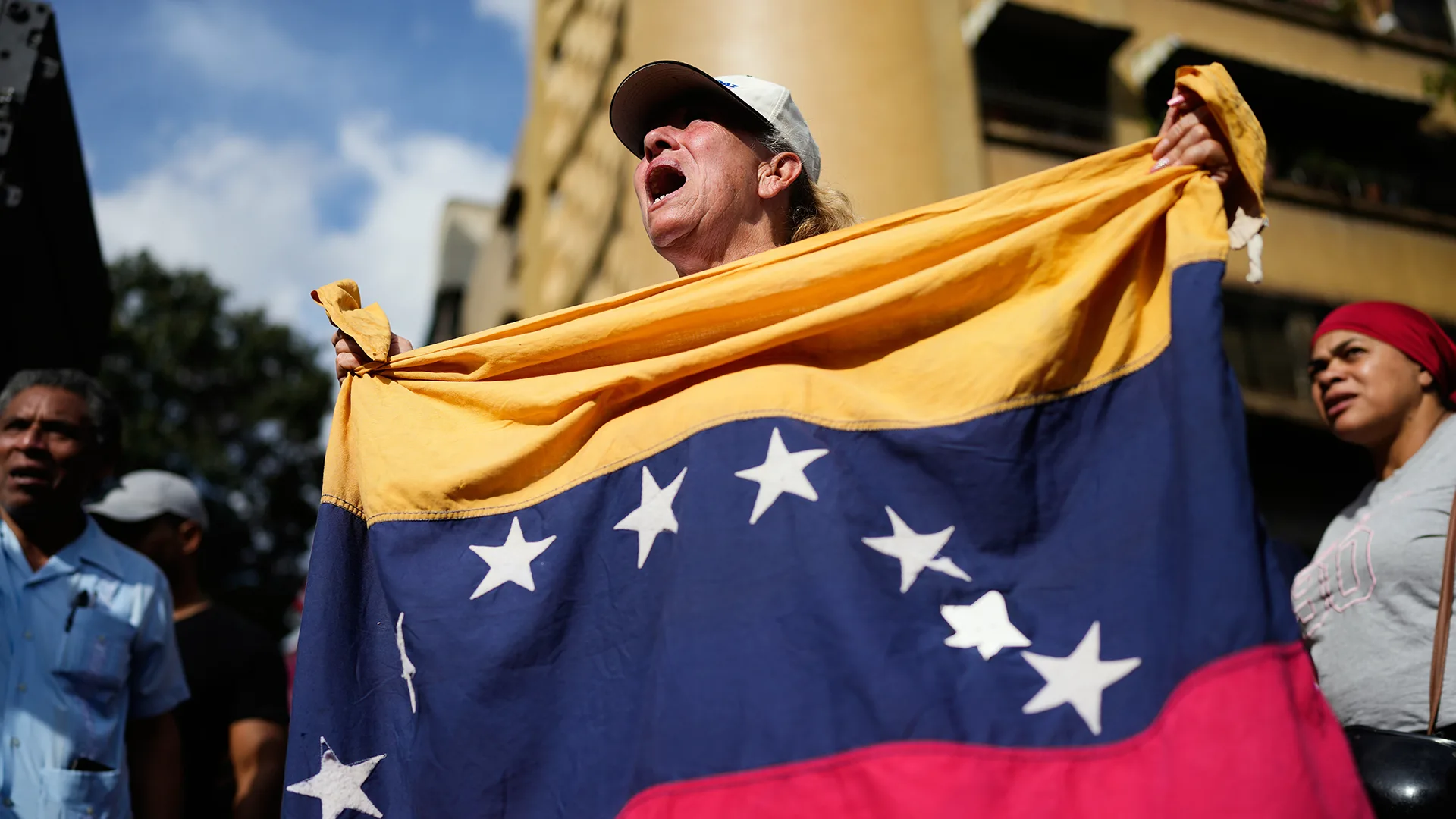The Mueller Investigation
March 22, 2019
54m
With the Mueller report complete, a look back at how we arrived at this moment
The Mueller Investigation
March 22, 2019
54m
Share
For two years, special counsel Robert Mueller’s probe into Russian meddling in the 2016 election has dominated headlines. Drawing from interviews with U.S. officials, Trump advisers, legal experts and journalists, FRONTLINE offers an inside look into the investigation that President Donald Trump has continually deemed a “witch hunt.”
Transcript
Credits
Journalistic Standards
Support provided by:
Learn More
Most Watched
The FRONTLINE Newsletter

The Mueller Investigation, Explained
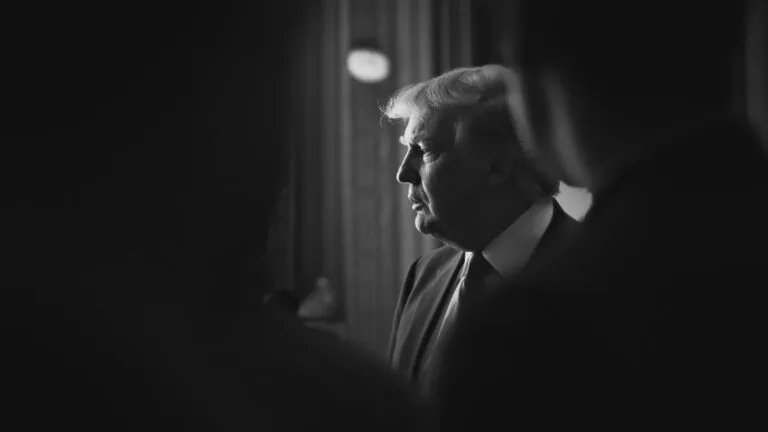
Trump’s Showdown
Related Stories
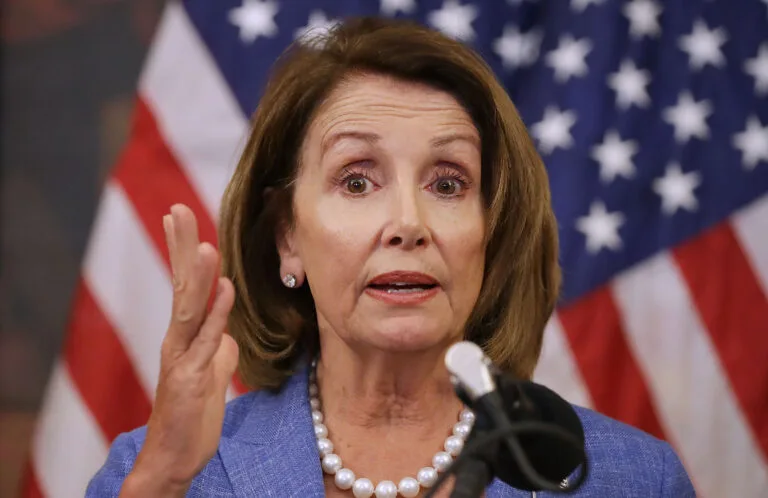
Nancy Pelosi Announced a Formal Impeachment Inquiry. Now What?

Mueller’s Testimony: 5 Things Congress May Press Him On This Wednesday
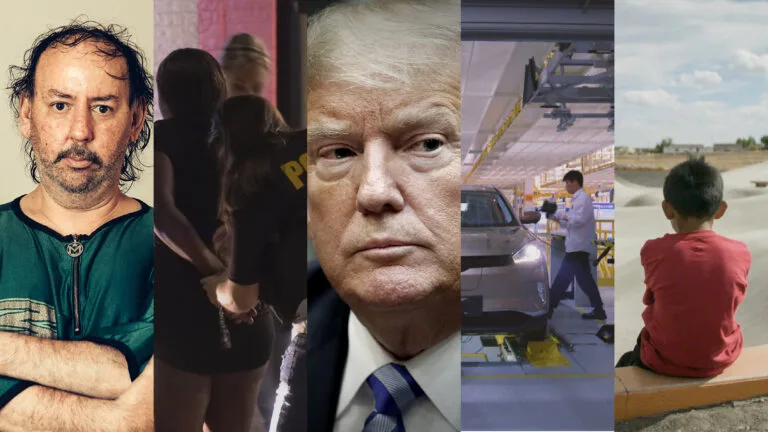
Watch FRONTLINE’s 5 Most-Streamed Documentaries of 2019 (So Far)

Robert Mueller Statement: Charging President Trump ‘Not an Option’

As a Congressional Fight Over Possible Obstruction Looms, See What Mueller Investigated

The Mueller Investigation, Explained
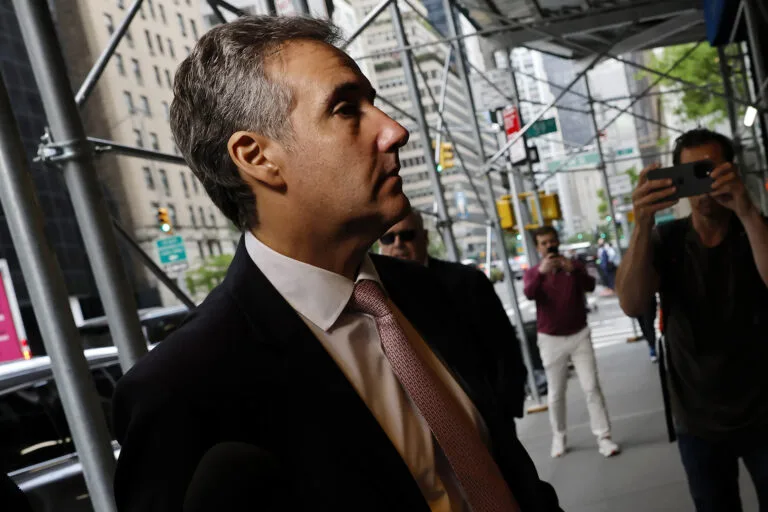
A Historic Criminal Conviction and Trump’s Ex-‘Fixer’
Related Stories

Nancy Pelosi Announced a Formal Impeachment Inquiry. Now What?

Mueller’s Testimony: 5 Things Congress May Press Him On This Wednesday

Watch FRONTLINE’s 5 Most-Streamed Documentaries of 2019 (So Far)

Robert Mueller Statement: Charging President Trump ‘Not an Option’

As a Congressional Fight Over Possible Obstruction Looms, See What Mueller Investigated

The Mueller Investigation, Explained

A Historic Criminal Conviction and Trump’s Ex-‘Fixer’
This is an update of a program that originally aired March 25, 2019.
MALE NEWSREADER:
Robert Mueller has submitted his report on the Russia investigation—
MALE NEWSREADER:
Bob Mueller submitted his report to the attorney general, period—
NARRATOR:
The road to the Mueller report goes back to the 2016 presidential campaign and to Russia.
DONALD TRUMP:
Russia, if you’re listening, I hope you’re able to find—
NARRATOR:
Evidence of Russian interference had sparked a secret FBI investigation that followed Trump into the White House.
FEMALE NEWSREADER:
—between the Trump campaign and Russia.
MATT APUZZO, The New York Times:
The very inauguration of President Trump, you know, poses challenges to the FBI because they have investigations on Paul Manafort, the former campaign chairman; Carter Page, foreign policy adviser to the president’s campaign; George Papadopoulos, a foreign policy adviser to the campaign; and Michael Flynn, the national security adviser. So I mean, these are four people in the national security space who are all under FBI investigation.
NARRATOR:
Within the first week of Trump’s presidency, FBI Director James Comey received a phone call.
CARRIE JOHNSON, NPR:
Surprise call, from the president. “Want to come over for dinner, Jim?”
And Comey says, “Ehh—yeah, sure, Mr. President.”
NARRATOR:
When he arrived at the White House for dinner, Comey discovered the table had been set for two.
CARRIE JOHNSON:
Two. Nobody else is going to be there. He and the president.
NARRATOR:
Suspicious of the president’s motives for the meeting, Comey would type a record of the conversation.
FBI documents
MALE VOICE:
We sat facing each other at a small oval table set for two and placed in the center of the room.
MATT APUZZO:
Comey says the president had very nice words for him. And so it’s this pleasant conversation. And then the president says, “Can I expect loyalty from you?”
MALE VOICE:
He needed loyalty and expected loyalty. I did not reply, or even nod, or change my facial expression.
NARRATOR:
The president would ask for Comey’s loyalty several times during the dinner.
PETER BAKER, Co-Author, “Kremlin Rising”:
It’s a remarkable moment: a president demanding loyalty of an FBI director.
MALE VOICE:
He then returned to loyalty, saying, “I need loyalty.” I replied that he would always get honesty from me.
ROBERT COSTA, Moderator, “Washington Week”:
In the eyes of the White House, President Trump was feeling out Comey about where the investigation stood, how he was going to handle it. Comey saw it as intimidation, possible obstruction of justice. This is the moment where things really start to split.
MALE NEWSREADER:
Russia has come up again and again in this—
NARRATOR:
At the FBI, one of its investigations, into National Security Adviser Michael Flynn, was picking up speed.
Intelligence agencies had intercepted a phone call between Flynn and the Russian ambassador, and then Flynn had lied to the FBI about it.
MICHAEL ISIKOFF, Co-Author, “Russian Roulette”:
He dissembles. He suggests that he did not have such conversations with the Russian ambassador.
NARRATOR:
Court documents detail what happened.
MALE VOICE:
Flynn falsely stated that he did not ask Russia’s ambassador to refrain from escalating the situation in response to sanctions.
FEMALE NEWSREADER:
Twenty-five days on the job, embattled National Security Adviser Michael Flynn has stepped down.
NARRATOR:
Flynn was forced to resign.
FEMALE NEWSREADER:
Shake up for the Trump administration.
MALE NEWSREADER:
A tumultuous first month in office.
NARRATOR:
But he was still in jeopardy from the investigation.
MALE NEWSREADER:
—was the first major departure of President Trump’s senior team after—
NARRATOR:
Now the president took an extraordinary step.
GWENDA BLAIR, Author, “The Trumps”:
On Valentine’s Day 2017, there was a meeting in the Oval Office between the attorney general and the director of the FBI, Jim Comey.
NARRATOR:
As the meeting ended, the president wanted to speak to the FBI director alone.
GWENDA BLAIR:
So he finally gets the two of them, just the two of them in the room, and then proceeds to get to work on the Michael Flynn issue—
MALE VOICE:
He began by saying he wanted to “talk about Mike Flynn.”
GWENDA BLAIR:
—saying, “Can you just kind of ease up on him? He’s a really good guy.”
FBI documents
MALE VOICE:
“I hope you can let this go.”
I replied by saying, “I agree he is a good guy,” but said no more.
CAROL LEONNIG, The Washington Post:
Is the president asking the FBI director to stop looking at Russian interactions with the campaign? Is he trying to shut down a counterintelligence probe that began in July of 2016?
MICHAEL ISIKOFF:
Trump’s talking to the director of the FBI about an ongoing investigation by the FBI. And at that point, he’s really, from Comey’s perspective, crossed the line.
MARY McCORD, Former Acting Assistant Attorney General:
It’s really in direct contravention of policies that have been in place ever since Watergate to not have that type of interference by the White House in investigations undertaken by the department or the bureau.
ANDREW McCABE, Former FBI Deputy Director:
Jim called me shortly after he left the White House. And I remember just listening to the details of that meeting and really being in a state of shock.
That’s when I realized that this was not simply a lack of sophistication or a lack of understanding about how we do our work. It was an active effort to influence what we were doing.
NARRATOR:
Once again Comey typed his notes of the meeting on his laptop.
CAROL LEONNIG:
Comey begins opening his laptop and typing down the words, the phrases that he can remember the president said because he’s that scared of—of what this is that has just happened.
FBI documents
FRANK MONTOYA JR., Former FBI Special Agent in Charge:
There’s an old adage in the organization that, “If it happened and you didn’t write it down, it didn’t happen.”
And so I think that he was thinking, at that time, that, you know, the president is at least walking himself down this trail to an investigation, where he could become subject to investigation, and I need to be able to document what has happened.
MALE NEWSREADER:
For the first time, FBI Director James Comey will reveal what his agency has learned—
NARRATOR:
But Comey didn’t back down.
FEMALE NEWSREADER:
Comey will be appearing before a House Intelligence Committee that’s also—
NARRATOR:
In fact, he went public, in testimony before Congress.
FEMALE NEWSREADER:
—will raise his right hand and tell you what he knows. It’s all public on live television, no filter.
JAMES COMEY:
Mr. Chairman, Ranking Member Schiff, members of the committee, thank you for including me in today’s hearing. I’m honored to be here representing the people of the FBI.
I have been authorized by the Department of Justice to confirm—
MATT APUZZO:
And he says, “I have been authorized by the Department of Justice to confirm—”
And kind of all heads turn to the television in every newsroom in America, and we’re saying, “Is—is Comey going to confirm on the record that they’re investigating the Trump campaign?”
JAMES COMEY:
—that the FBI, as part of our counterintelligence mission, is investigating the nature of any links between individuals associated with the Trump campaign and the Russian government, and whether there was any coordination between the campaign and Russia’s efforts.
PETER BAKER:
He confirms this in front of these lawmakers. And that’s kind of a big moment.
Suddenly we’re off to the races. This is now, to Trump’s mind, a direct and public threat to his presidency.
REP. DEVIN NUNES, R-Calif.:
I just want to make sure we get this on the record.
Do you have any evidence that any current Trump White House or administration official coordinated with the Russian intelligence services?
JAMES COMEY:
Not a question I can answer.
ROBERT RAY, Former Independent Counsel:
That was the death knell, at least as we understand the president’s thinking.
Once he heard and saw that, because apparently he was watching, that was—at least in his mind, that was the end of Jim Comey.
MALE NEWSREADER:
The head of the FBI dropped two bombshells landing at the White House doorstep.
FEMALE NEWSREADER:
Comey publicly confirming for the first time that the FBI is in fact investigating—
NARRATOR:
As the headlines got worse, and under pressure from Comey, Trump left Washington. He headed for his country club in Bedminster, N.J.
SARAH ELLISON, The Washington Post:
It’s a sort of rainy weekend in Bedminster. So Donald Trump is supposed to be out golfing. He’s stuck inside. He’s in a sort of foul mood anyway.
ROBERT COSTA:
The president was frustrated. His family was frustrated. They felt like they were being swept into this riptide of an investigation. And they thought if they could just pluck Comey out that maybe the investigation could end.
FEMALE NEWSREADER:
Also, new whirlwind developments reported in the ever-growing Russian scandal—
NARRATOR:
In Bedminster, on that rainy weekend, without any of his most senior staff members present, Donald Trump would make the most consequential decision of his first year in office.
PETER BAKER:
Trump comes to the conclusion that, “I can’t put up with this anymore. I’m going to fire Jim Comey.”
There’s no consultation. There’s just gut instinct and raw anger.
NARRATOR:
Trump dictated a letter to Comey.
CAROL LEONNIG:
It is a rant, the original draft. Nobody’s original draft is that great, but this draft is Donald Trump unloading all of the reasons that Comey has failed him.
NARRATOR:
On Sunday, Donald Trump returned to Washington with the letter, determined to carry out his plan to stop Jim Comey once and for all.
FEMALE NEWSREADER:
Comey has been indicating that he knows so much more than he’s letting on, and he’s not—
MALE NEWSREADER:
Comey opens up another investigation into the Trump—
FEMALE NEWSREADER:
James Comey isn’t backing down. He’s said he wouldn’t do anything—
MALE NEWSREADER:
—still an active part of an FBI investigation. Was there collusion between Trump associates—
MALE NEWSREADER:
Lawmakers say Comey has a tough road ahead as the FBI’s investigation—
NARRATOR:
The next morning in the West Wing the word was out: Trump was preparing to take the fateful step of sending the letter.
CARRIE JOHNSON:
Word gets back to Don McGahn, the White House counsel, that this document has been prepared.
And he freaks out.
MATT APUZZO:
Our understanding is that Don McGahn reads that and says, “Yeah, you don’t want to send that.”
NARRATOR:
Even Trump’s abrasive advisor Steve Bannon was stunned.
CARRIE JOHNSON:
Of all people, Steve Bannon is the one in the room who’s saying, “You can’t get rid of this guy Jim Comey. This would be a terrible, terrible mistake. It’s gonna cause a firestorm.”
STEVE BANNON, Former Trump chief strategist:
Just play it out. If you do this, it’s going to create a firestorm.
The FBI, institutionally, has to bleed you out. You just can’t—they’re not going to allow somebody to fire and humiliate the head of the FBI. And we’re going to get a special counsel on top of it.
NARRATOR:
The White House counsel had a plan that might soften the blow.
MATT APUZZO:
McGahn had separately learned that Rod Rosenstein, the deputy attorney general, also had concerns with Jim Comey. And he brokers this deal. So he basically says to the president, “You know, Mr. President, you don’t need to send that. You should really talk to Rod Rosenstein.”
NARRATOR:
They set up a meeting between Rosenstein, Attorney General Jeff Sessions and the president.
PHILIP RUCKER, The Washington Post:
The president lets them know he wants to fire James Comey. That’s clear. And the directive for Sessions and Rosenstein is to draw up the rationale, to write memos explaining why they believe Comey had made mistakes on the job and deserved to be fired.
NARRATOR:
They had their orders. Rosenstein would build a case against Jim Comey’s handling of the FBI.
CARRIE JOHNSON:
Rod Rosenstein, this guy who served 27 years in the Justice Department. A Boy Scout—he looks like a Boy Scout.
And he thinks that Comey has violated the Justice Department norms by talking too much about Hillary Clinton during the election.
NARRATOR:
The president wanted the memo as soon as possible. It was a rush job.
Rosenstein delivered it the next day.
PETER BAKER, The New York Times:
Rod Rosenstein’s memo echoed what a lot of the Hillary Clinton campaign people had been saying for months: that Comey had inserted himself into the election; he’d made himself too public; he had taken on a role that did not really belong to him.
MALE VOICE:
The director ignored another long-standing principle: We do not hold press conferences to release derogatory information about the subject of a declined criminal investigation.
MICHAEL ISIKOFF:
Trump doesn’t care about what Comey did to hurt Hillary Clinton, but it becomes the excuse, or at least the initial excuse, the White House uses to explain why they were firing the FBI director.
NARRATOR:
Donald Tump had fired hundreds of people face-to-face on “The Apprentice.” This time, as president, it would be different.
TIMOTHY O’BRIEN, Author, “TrumpNation”:
He just decides to do it.
Trump isn’t going to deliver the message himself. He sends his longtime bodyguard in a White House car with the pink slip over to the FBI to deliver the bad news.
MATT APUZZO:
Keith Schiller, the president’s body man, can’t get into the FBI.
The FBI is not a place you can just walk in and be like, “I have a note for Comey, I’m from the White House.”
“Great, you’re from the White House. Super. You can’t come in here.”
NARRATOR:
He dropped off the letter and left.
FEMALE NEWSREADER:
Breaking news: James Comey has been removed from heading the FBI—
ANDREW McCABE:
The attorney general looked at me and said, “I don’t know if you’ve heard, but we’ve had to fire the director of the FBI.”
It was completely disorienting. Kind of, in the blink of an eye, I immediately sensed that everything had changed.
So I just looked at the attorney general and I said, “No, sir, I hadn’t heard that.”
MALE NEWSREADER:
Comey apparently also caught completely off guard—
NARRATOR:
As the news broke, a political firestorm erupted in Washington.
FEMALE NEWSREADER:
Amid mounting outrage on Capitol Hill, some lawmakers are questioning the country’s very foundation—
MALE NEWSREADER:
It comes on the heels of what many saw as devastating testimony—
NARRATOR:
Inside the White House: crisis.
CLIFF SIMS, Former Trump aide:
Hope Hicks bursts in the door and says, “The president is watching TV. He’s watching the coverage of the Comey firing, and there’s no one out there to defend him. You guys aren’t doing anything to fix this.”
FEMALE REPORTER:
The White House is not interested in getting to the bottom of this.
NARRATOR:
At first the White House’s response was to point to Deputy Attorney General Rod Rosenstein.
SEAN SPICER:
Deputy attorney general is a gentleman by the name of Rod Rosenstein. He made a determination that the FBI director had lost his confidence.
CARRIE JOHNSON:
The message from the White House is, “We fired Comey because he botched the Hillary Clinton investigation, period.”
ANDERSON COOPER:
You know, to those who say, “Why now? Why fire James Comey now?,” what do you say?
KELLYANNE CONWAY:
Well, I would point them to the three letters that were received today, Anderson. The letter by President Donald Trump, the letter by Attorney General Sessions, and really, the underlying report by Deputy Attorney General Rod Rosenstein, who the FBI director reports to. The FBI director—
HOWARD KURTZ, Author, “Media Madness”:
All of the people spinning on behalf of the White House told the press that the Comey firing was based on a memo from Rod Rosenstein, the deputy attorney general, which had to do with Comey’s performance in the Hillary Clinton investigation. Well, the press wasn’t buying that.
ANDERSON COOPER:
Right. But a lot of this—most of this letter focuses—
KELLYANNE CONWAY:
And Mr. Rosenstein goes on to say—
ANDERSON COOPER:
—on, on Hillary Clinton’s emails. This is stuff that, as a candidate, Donald Trump praised James Comey for. James Comey—Donald Trump talked about this.
FEMALE NEWSREADER:
Many questioning if Comey was fired because the White House fears he could possibly get to the bottom of any potential Russia—
NARRATOR:
The next morning the president would celebrate Comey’s firing behind closed doors with two unlikely White House guests:
Russian Foreign Minister Sergei Lavrov and Ambassador Sergey Kislyak.
MALE NEWSREADER:
Just ahead today’s meeting with the Russian foreign minister, Sergei Lavrov—
CAROL LEONNIG:
Oy. That meeting.
FEMALE NEWSREADER:
The president will meet with Sergei Lavrov in the Oval Office. He is the highest-ranking Russian official that the president has met so far—
CAROL LEONNIG:
In a way it—it’s like a play; you can’t believe it really happened. But the president is essentially celebrating with the Russian diplomats.
MALE NEWSREADER:
One day after firing the man heading that probe into the Trump campaign ties to Russia, the president—
CARRIE JOHNSON:
No U.S.-based reporters, no American White House reporters are in the room.
PHILIP RUCKER:
The Russians came in with a photographer from their state media agency TASS, who took photos of this event. Photos that were used, to some effect in Russia, as propaganda.
MALE VOICE:
[speaking Russian]
MATT APUZZO:
Terrible optics. I mean, terrible optics. Terrible optics that just—you couldn’t have scripted it worse.
MALE VOICE:
[speaking Russian]
KAREN DeYOUNG, The Washington Post:
Trump says, “We’re going to have a great relationship. There’s this investigation. It’s just become a total irritant for me.”
And he says, “Comey’s firing lifted a great weight for me. The guy was a nut job.”
MALE NEWSREADER:
James Comey. First the firing, now the fallout.
NARRATOR:
The crisis kept building.
FEMALE NEWSREADER:
Some are comparing Comey’s firing to Richard Nixon’s 1973 Saturday Night Massacre.
FEMALE NEWSREADER:
President Trump now facing outrage after firing Comey—
MALE NEWSREADER:
It is hard to overstate the sheer magnitude of the far-reaching impact of President Trump’s stunning decision.
NARRATOR:
Then the president decided to speak out himself, on his old network.
MALE ANNOUNCER:
This is NBC Nightly News with Lester Holt.
LESTER HOLT:
Tonight, stunning revelations from President Trump and our NBC News exclusive interview. Tonight our wide-ranging—
Monday, you met with the deputy attorney general, Rod Rosenstein.
PRESIDENT DONALD TRUMP:
Right.
LESTER HOLT:
Did you ask for a recommendation?
PRESIDENT DONALD TRUMP:
What I did is I was going to fire Comey. My decision. It was not—
LESTER HOLT:
You had made the decision before they came into your office?
PRESIDENT DONALD TRUMP:
I was going to fire Comey.
MATTHEW MILLER, Former Department of Justice:
It is a dramatic moment to see the president come out and not only completely undermine the case that his White House had been making—as spurious a case and as odd, transparent as a case it was, it still had been the official line.
The president comes out and demolishes that case immediately.
PRESIDENT DONALD TRUMP:
Well, they also—
LESTER HOLT:
So you had already made the decision.
PRESIDENT DONALD TRUMP:
Oh, I was going to fire regardless of recommendation.
LESTER HOLT:
So there really was no—
HOWARD KURTZ:
I think there’s a level on which President Trump doesn’t want to be portrayed as just doing the bidding of some aides who write a memo. He’s the decider, to coin a phrase.
PRESIDENT DONALD TRUMP:
In fact, when I decided to just do it, I said to myself, I said, “You know, this Russia thing with Trump and Russia is a made-up story. It’s an excuse by the Democrats for having lost an election that they should have won.”
PHILIP RUCKER:
You know, the thing with Donald Trump is, he often says what he believes. And if you just wait long enough, he’ll tell you the truth. I mean, he’ll say it.
MALE NEWSREADER:
It is the interview that will likely dominate social media and television—
NARRATOR:
The interview backfired.
MALE NEWSREADER:
The president’s comments contradict the White House previous statements—
FEMALE NEWSREADER:
The president admitting Russia was on his mind—
NARRATOR:
At the FBI, Acting Director Andrew McCabe was concerned that the president may have fired Comey to shut down the Russia investigation.
ANDREW McCABE:
One possibility would be that that president, who did not want that issue investigated by the FBI, was in fact in league with, or influenced by, the Russian government. And that is an unbelievably significant concern.
NARRATOR:
McCabe informed Rosenstein that the FBI wanted to investigate the president of the United States.
ANDREW McCABE:
I alerted Rod to the fact that my investigators had recommended opening a case on the president of the United States for both possibility of obstruction of justice and the possibility of national security threat.
NARRATOR:
Rosenstein made a decision to appoint a special counsel to oversee the investigation.
ROBERT COSTA, The Washington Post:
Rosenstein said, “I need someone to not only stabilize the investigation, I need to stabilize the Department of Justice.”
It had been under siege from President Trump, from public scrutiny.
NARRATOR:
He named one of the nation’s legendary prosecutors: former FBI Director Robert S. Mueller III.
Mueller had a lifetime of preparation for this moment.
CARRIE JOHNSON:
He volunteered to serve in Vietnam as a United States Marine. Highly decorated, wounded in action.
NARRATOR:
In the ’90s, Mueller had tried his hand in the private sector at a prestigious law firm.
He hated it.
MARC FISHER, The Washington Post:
$400,000 a year, he felt like he wasn’t doing the Lord’s work. He quit.
NARRATOR:
He took a substantial pay cut to become a line prosecutor. He worked homicide in Washington, D.C.
MARC FISHER:
His great joy was putting away bad guys and answering his phone, “Mueller, Homicide.”
MICHAEL ISIKOFF:
Bob Mueller cares about one thing, and one thing only: indicting bad guys and putting them in prison.
NARRATOR:
A Republican, he’d run the FBI for both George W. Bush and Barack Obama.
Pulled out of private practice, Robert Mueller was back at the center of the action.
FEMALE NEWSREADER:
We begin with breaking news, a White House in crisis. The Justice Department appointed a special counsel to investigate whether Russia—
FRANK MONTOYA JR.:
This is a guy who has no problem with holding people accountable, being direct and driven to get the answer.
That he’s going to do it right, you know, in accordance with the rule of law. That’s all that matters.
FEMALE NEWSREADER:
The Justice Department tonight naming special counsel to take over the investigation.
STEVE BANNON:
He was announced as special counsel, and I just go, “Oh my God. This is going to be a grind, because this is a guy that doesn’t leave any stone unturned.” I mean, now we’ve bought it.
MALE NEWSREADER:
That Mueller could expand the probe to include Attorney General Jeff Sessions and Deputy Attorney General Rod Rosenstein—
NARRATOR:
At the White House, the president happened to be meeting with Attorney General Jeff Sessions when Rosenstein called to announce Mueller’s appointment.
J.D. GORDON, Trump campaign adviser:
President Trump doesn’t like to get bad news, and this was bad news. It was more than bad news, it was terrible news.
YAMICHE ALCINDOR, “PBS NewsHour”:
And now you see him really unleash all his anger on Jeff Sessions, and plainly tells Jeff Sessions that “You are the reason why all of this is happening.”
NARRATOR:
Sessions, Trump’s hand-picked attorney general, had recused himself from the Russia investigation. And now Sessions was powerless to stop Mueller.
CHRIS WHIPPLE, Author, “The Gatekeepers”:
Trump was furious and took it out on Sessions and humiliated him.
Trump obviously felt himself endangered by a special counsel, and uh, lost his temper.
CARRIE JOHNSON:
There are things that Jeff Sessions apparently won’t do for Donald Trump, and Donald Trump won’t forgive him for that.
NARRATOR:
Sessions had had enough of the president’s anger.
PETER BAKER:
Sessions just ends up bolting out of the White House, rushing out to his car. He said, “You want me to quit? I’m going to quit.”
CHRIS WHIPPLE:
He is resigning as attorney general. He’s distraught, and he’s had it.
He’s at the end of his rope. He’s been insulted by Trump. He’s decided that that’s it.
NARRATOR:
In the West Wing, all hell broke loose.
CHRIS WHIPPLE:
Don McGahn, the legal counsel, bursts into Reince Priebus’ office and says, “We’ve got trouble. Not only do we have a special counsel appointed, but Jeff Sessions has just resigned.”
Priebus says, “You’re kidding me.” Priebus goes running down the staircase into the West Wing parking lot—
PETER BAKER:
—finds Sessions in his car preparing to leave, and he bangs on the door. “You got to come out. You got to come back in. You can’t leave this way. You can’t just blow up like this.”
CHRIS WHIPPLE:
And Priebus essentially almost has to drag him back up into the West Wing, where Vice President Pence and Steve Bannon then come in and join Priebus and talk Sessions off the ledge.
STEVE BANNON:
I said, “Is there any doubt in your mind that this was divine providence that put us here?” He says, “No doubt.” I said, “And you’re never going to quit?” He says, “I will never quit.” I go, “No matter how bad it gets?” He goes, “I’ll never quit.”
And that’s why I knew he was going to hang in there. And he had some, he had some very, very, very tough days.
FEMALE NEWSREADER:
It’s clear that the Mueller investigation is just getting started. We’re going to head to Washington, where the White House—
NARRATOR:
Across town in an undisclosed secure location—
MALE NEWSREADER:
Mueller continues to build something of a dream team—
NARRATOR:
—the new special counsel, Robert Mueller, was just getting started.
ROBERT RAY:
When you become a special prosecutor, they give you a piece of paper with a mandate.
At that moment, you don’t have anything else. You don’t have a staff. You don’t have agents. You don’t have prosectors.
You don’t even have a legal pad and paper clip and a pen.
FEMALE NEWSREADER:
Mueller has quietly gathered a team of more than three dozen attorneys, investigators and other staff.
NARRATOR:
From his offices, Mueller built a formidable team.
MALE NEWSREADER:
Robert Mueller has assembled—I believe his term was “ninja assassins of attorney generals”—
MATTHEW MILLER:
This is like those moments at the beginning of the Avengers movies where all the superheroes are kind of spread across the globe, and Bob Mueller calls them all, and they all reassemble together in Washington to take on this new mission.
CARRIE JOHNSON:
And the team Mueller has assembled may be the A-team of prosecutors for an entire generation.
MATTHEW MILLER:
Aaron Zebley, who is an FBI agent before becoming a prosecutor.
MARY McCORD:
Michael Dreeben, who is one of the smartest people I know, who’s argued over a hundred Supreme Court cases.
MATTHEW MILLER:
Jeannie Rhee, who was a highly respected prosecutor in the U.S. Attorney’s Office.
MATT APUZZO:
Andrew Weissmann; he has a reputation for being a scorched-earth prosecutor.
MATTHEW MILLER:
Mueller put Greg Andres on his team, who was an experienced mob prosecutor in New York.
MICHAEL ISIKOFF:
I mean, that was the first sort of warning sign for the Trump White House because—
“They’re killers,” Steve Bannon calls them.
NARRATOR:
Mueller’s team had broad authority to investigate Russian interference, the Trump campaign and, in the wake of the Comey firing, possible obstruction of justice by the president himself.
Trump was under siege. In anger, he launched a counterattack.
MALE VOICE:
This is the single greatest witch hunt of a politician in American history!
MALE VOICE:
There is no collusion and no obstruction. I should be given apology!
MALE VOICE:
You are witnessing the single greatest witch hunt in American political history—led by some very bad and conflicted people!
LISA DESJARDINS, “PBS NewsHour”:
The president definitely seized on that term “witch hunt.” He used it again and again.
He used it in tweets. He used it when he was at a microphone. It’s something that he felt was working to undermine the Mueller investigation.
MALE VOICE:
After seven months of investigations and “collusion with the Russians,” nobody has been able to show any proof. Sad!
YAMICHE ALCINDOR:
President Trump calling the Mueller investigation a “witch hunt” has an impact in Washington in that the people who want to be loyal to President Trump can use that same language.
MALE NEWSREADER:
“Fox and Friends” starts right now.
NARRATOR:
And at Fox News, that’s just what happened.
FEMALE NEWSREADER:
The president is really mad.
MALE NEWSREADER:
He tweeted this out: “As the phony Russian Witch Hunt continues—”
NEWT GINGRICH:
This is a very dangerous witch hunt.
TRISH REGAN:
—only because I think this is a witch hunt—
SEAN HANNITY:
—and put an end to the political witch hunt against President Trump.
NARRATOR:
At The New York Times, they had a lead on what would become the biggest story yet:
They had discovered another meeting between the Trump campaign and the Russians.
MATT APUZZO:
My colleagues and I had been doing some reporting on this, the idea that there was another Russian meeting that we didn’t totally understand, that had been undisclosed during the campaign.
NARRATOR:
They learned Donald Trump Jr. had hosted the meeting with a Russian lawyer, Natalia Veselnitskaya.
Also in the room: Trump’s son-in-law, Jared Kushner, and campaign chairman Paul Manafort.
The Times wanted a comment from the president, who was traveling on Air Force One.
MATT APUZZO:
My phone rings and it’s the Air Force One operator, you know, “Can you please hold?”
And it’s, “I know we were supposed to have a call, I know we’re late. Can you just give us a little more time? We’re working on this.”
And of course we now know that at the front of Air Force One, Hope Hicks and President Trump are kind of working on this statement.
NARRATOR:
The president had taken charge of writing the response.
YAMICHE ALCINDOR:
He is at the center of it, and driving it. You have the president physically dictating a message that he’s going to put in the name of his son Donald Trump Jr.
CAROL LEONNIG:
The lawyers for the president are losing their minds. They are not on Air Force One, but they are hearing secondhand that a statement is about to be issued to The New York Times.
ROBERT BENNETT, Former President Clinton lawyer:
To write a statement, just—I mean, that’s just amateur hour.
But in fairness to these lawyers, I mean, I—they couldn’t control their client.
They still can’t control their client.
MALE NEWSREADER:
The White House responds to a report in The New York Times that claims Donald Trump Jr. met with a Russian lawyer with connections.
NARRATOR:
Trump’s statement, written for his son, said the meeting was about adoption of Russian orphans.
MALE VOICE:
It was a short introductory meeting. I asked Jared and Paul to stop by. We primarily discussed a program about the adoption of Russian children.
NARRATOR:
But there was a reason for the meeting that the president’s statement did not mention.
FEMALE NEWSREADER:
Last night The New York Times published details about a meeting during the campaign involving a Kremlin-linked lawyer and Donald Trump Jr.—
NARRATOR:
As the president returned to Washington, it didn’t take long for the truth to come out.
FEMALE NEWSREADER:
—between the president’s campaign team and Russia.
MALE NEWSREADER:
The explosive news about President Trump and Russia. It involves Donald Trump Jr., breaking in the last—
MATTHEW MILLER:
It only takes about 24 hours for that statement to completely blow up.
FEMALE NEWSREADER:
The potential bombshell from the president’s own son, Donald Trump Jr.—
NARRATOR:
In the days that followed, The New York Times discovered a series of emails setting up the meeting.
MALE NEWSREADER:
Another day, another installment in the Russian elections—
MATT APUZZO:
The next day we reported that what had actually happened is that Don Jr. had been promised dirt on Hillary Clinton by this Russian lawyer.
Donald Trump Jr. email
MALE VOICE:
The Crown prosecutor of Russia offered to provide the Trump campaign with some official documents and information that would incriminate Hillary and her dealings with Russia and would be very useful to your father.
MATT APUZZO:
In the email setting up the meeting, Don Jr. was told that this meeting was part of the Russian government’s efforts to support now-President Trump.
MALE VOICE
This is obviously very high-level and sensitive information but is part of Russia and its government’s support for Mr. Trump.
MATT APUZZO:
I mean, I remember saying, “Oh my God. It says it—it says it in an email? This is part of the Russian government’s efforts to support Donald Trump?”
MICHAEL ISIKOFF:
And what does Don Jr. write back in an email?
“If it’s what you say, I love it.”
MALE VOICE:
I love it, especially later in the summer.
MICHAEL ISIKOFF:
Coming on top of everything else that had come out about all these Russian contacts with the campaign, the Trump Tower email trail was incredibly damning.
NARRATOR:
For his part, the president would downplay the importance of the meeting.
PRESIDENT DONALD TRUMP:
Nothing happened from the meeting; zero happened from the meeting. And honestly, I think the press made a very big deal over something that really a lot of people would do.
FEMALE NEWSREADER:
Now we’ve got another email.
NARRATOR:
But special counsel Robert Mueller was paying close attention.
ANDREW McCABE:
The laws in this country are very clear. It is absolutely forbidden from a foreign—for a foreign government or a foreign person from taking part in a domestic campaign. So it is—I can understand entirely why the Mueller team is focused on that meeting.
MALE NEWSREADER:
We’ve now learned there could have been at least eight people in the room. Three—
NARRATOR:
Another question for Mueller’s team: Was there anything illegal about the president’s misleading statement?
CAROL LEONNIG:
The president’s lawyers, they’re intensely concerned that the president has essentially now added to an obstruction case.
NARRATOR:
Mueller would look into to the writing of that statement on Air Force One.
FRANK MONTOYA JR.:
If the president’s up there, and he’s deliberately crafting a lie to cover the purpose of the meeting, is that another step in the obstruction investigation? Is it also another step in terms of the conspiracy/collusion investigation?
MALE NEWSREADER:
It shows that the Trump team was willing to engage with the Russians—
FEMALE NEWSREADER:
What is it that special counsel Robert Mueller knows that hasn’t yet been made public—
NARRATOR:
And before long, Mueller’s investigation started to produce results.
MALE NEWSREADER:
Now there’s this new reporting from The Wall Street Journal reporting that special counsel Robert Mueller is examining—
FEMALE NEWSREADER:
—that special counsel Robert Mueller has issued subpoenas this morning—
MALE NEWSREADER:
—this morning unsealing a guilty plea—
NARRATOR:
Trump campaign foreign policy aide George Papadopoulos pled guilty to lying about Russian contacts.
FEMALE NEWSREADER:
We learned that former Trump aide George Papadopoulos has pleaded guilty to making false statements—
NARRATOR:
Trump’s campaign chairman Paul Manafort and his deputy Rick Gates were indicted on numerous charges, ranging from conspiracy to money laundering.
FEMALE NEWSREADER:
—is reporting that Manafort and his former business associate Rick Gates were told to surrender to federal authorities this morning.
NARRATOR:
Michael Flynn pled guilty to that charge of lying to the FBI.
FEMALE NEWSREADER:
White House national security adviser Michael Flynn has pleaded guilty to lying—
NARRATOR:
And then the FBI dramatically escalated the showdown.
LESTER HOLT:
Breaking news tonight, and it’s a bombshell. The FBI raids the office of President Trump’s personal lawyer, Michael Cohen.
NARRATOR:
The president, as he watched the raid on television, was furious.
PHILIP RUCKER:
Trump erupted. He was very upset.
He was consumed by this news all day. It was very troubling for him and scary for him.
MALE NEWSREADER:
—the FBI raiding his office, his home and hotel room.
ROBERT COSTA, Moderator, “Washington Week”:
White House advisors are saying, “Can we turn off the televisions? All the president is doing,” they say, “is getting himself agitated.” He’ll click over to Fox—
MALE NEWSREADER:
This is a Fox News Alert, there’s some breaking news today.
ROBERT COSTA:
—he watches CNN—
WOLF BLITZER:
—as the FBI raids the office of President Trump’s personal lawyer.
ROBERT COSTA:
—he’ll go to MSNBC—
FEMALE NEWSREADER:
The New York Times breaking the news in the last few minutes that the FBI has raided—
ROBERT COSTA:
—he’ll go back to CNN—
ANDERSON COOPER:
The FBI has also seized emails, tax documents and business records.
ROBERT COSTA:
—and he’ll just keep seeing those two words on the chyron: “Michael Cohen.”
And it sends him into a rage.
MALE NEWSREADER:
The no-knock raids by FBI agents were the result of a referral by special counsel Robert Mueller to the U.S. attorney in New York—
NARRATOR:
To the president, it was a personal assault—from the FBI, the Department of Justice and Robert Mueller.
ALAN DERSHOWITZ, Professor, Harvard Law School:
A lawyer is just like a priest, a doctor and a wife in terms of privilege.
So I don’t blame President Trump for being a little upset that somebody was looking into what he may have told his lawyers.
NARRATOR:
The Cohen raid was a sign Trump’s personal life in New York was colliding with his presidency in Washington.
ROBERT COSTA:
Cohen brings it right back to Trump Tower, to how Trump really operated for decades: having someone like Michael Cohen, not just a lawyer, but a fixer, at his side.
NARRATOR:
Cohen was infamous for his role in the Stormy Daniels story, orchestrating a hush money payment to the adult film star, who threatened to reveal a sexual encounter with Trump.
EMILY BAZELON, The New York Times Magazine:
He cleans up messes. And an accusation about an affair, a demand for some kind of compensation to keep quiet, that’s exactly the kind of problem that Cohen would like to try to solve for Donald Trump.
SAM NUNBERG, Former Trump political adviser:
Michael is very good at killing stories. He’s gotten Trump out of a lot of issues, I would say.
And that was his job, and he’s done a good job out of it.
NARRATOR:
Now Cohen was the target of a federal investigation, one which could expose the work he did for the president.
FEMALE NEWSREADER:
There is a ton that he could tell prosecutors.
MALE NEWSREADER:
A very real possibility that he’s going to cooperate.
FEMALE NEWSREADER:
—reportedly is connected to the Stormy Daniels story—
FEMALE NEWSREADER:
If he overstepped the line on this, and again—
NARRATOR:
The day of the Cohen raid, the White House insisted it was business as usual.
They invited the press into a national security meeting.
But Tump wanted to go on the attack.
PRESIDENT DONALD TRUMP:
Come on in folks, come on in.
So I just heard that they broke into the office of one of my personal attorneys—a good man. And it’s a disgraceful situation. It’s a total witch hunt.
CAROL LEONNIG:
The president is so enraged and obsessed with what’s just happened that he can’t keep himself from talking about it. At a public briefing, he repeatedly uses the words “disgrace, a disgrace.”
PRESIDENT DONALD TRUMP:
And it’s a disgrace. It’s frankly, a real disgrace. It’s a—an attack on our country, in a true sense.
MATTHEW MILLER:
Something clearly happens with the president after Michael Cohen comes under scrutiny from the Department of Justice. The president views that very much as a threat to him.
PRESIDENT DONALD TRUMP:
These people have the biggest conflicts of interest I’ve ever seen. And I have this witch hunt constantly going on for over 12 months now.
NELSON CUNNINGHAM, Former President Clinton legal adviser:
The investigation of Michael Cohen has to feel, to the president, like an arrow pointed directly at his chest.
It has to feel that this is aimed precisely at uncovering the president’s own history, both before he took office and since he took office, in ways that perhaps might be the most deeply sensitive to him.
PRESIDENT DONALD TRUMP:
This is a pure and simple witch hunt. Thank you very much, thank you.
JACK GOLDSMITH, Former Assistant Attorney General:
It’s a whole other avenue of potential exposure, criminal exposure to the president.
This was clearly someone who was a very close adviser and attorney to the president, and he was especially involved in what might be seen as the president’s shady business.
FEMALE VOICE:
Thank you all, thank you all.
NARRATOR:
The raid on Cohen. Mueller’s continuing investigation.
There was even talk of impeachment.
The president was determined to escalate. He brought in a new lawyer.
RUDY GIULIANI:
The president has done nothing wrong. Read my lips, nothing wrong!
YAMICHE ALCINDOR:
He hires Rudy Giuliani, and he really hires a pit bull.
He hires someone who is really gonna be launching an offensive strategy.
RUDY GIULIANI:
There’s been too much government misconduct. The crimes now have all been committed by the government and their agents.
ROBERT COSTA:
Trump wants to be in warrior mode. Giuliani agrees.
It goes from a private negotiation to a public war, and that’s a turning point.
NARRATOR:
Trump and Giuliani initiated an unfettered attack against Mueller’s investigation and any move toward impeachment.
ALAN DERSHOWITZ:
Rudy Giuliani was gonna change the strategy. He said, “Let’s really make this into a political confrontation. Let’s make it into a blue-red debate and conflict.”
RUDY GIULIANI:
So our jury is—as it should be—is the American people. And the American people, yes, are Republicans, largely; independents, pretty substantially; and even some Democrats now question the legitimacy of it.
ALAN DERSHOWITZ:
What Giuliani is saying is, “Impeachment will never get off the ground unless the public is behind it.”
MALE NEWSREADER:
This is a Fox News alert. President Trump is getting set to leave the White House.
NARRATOR:
In order to protect himself—
FEMALE NEWSREADER:
—new strategy to take his message to the voters in states.
NARRATOR:
—the president worked to undermine public confidence in the Justice Department and the FBI.
FEMALE NEWSREADER:
In a campaign-style rally, a defiant President Trump.
MALE NEWSREADER:
Trump back in his happy place.
PRESIDENT DONALD TRUMP:
When you look at what was going on at the top of the FBI, it is a disgrace, and everybody in this room understands it.
JACK GOLDSMITH:
One thing we know about this President, he doesn’t care about collateral damage.
And he doesn’t care about collateral damage on his associates. And he doesn’t care about collateral damage on American institutions. And so the stakes could not be higher.
MALE VOICE:
It would seem very hard to obstruct justice for a crime that never happened! Witch hunt!
MALE VOICE:
I have the absolute right to pardon myself.
PRESIDENT DONALD TRUMP:
Look at what’s happened. Look at how these politicians have fallen for this junk. Russian collusion. Give me a break.
JONATHAN MAHLER, The New York Times Magazine:
As long as the country is sort of divided and he has his defenders, he can undermine those who are attacking him.
PRESIDENT DONALD TRUMP:
Take a look at the intelligence agencies. Honestly, folks, let me tell you, let me tell you, it’s a disgrace. We got to get back down to business. It’s a disgrace.
JONATHAN MAHLER:
It’s basically a kind of divide-and-conquer kind of strategy. If we can stay in this kind of divided state, there will never be enough consensus behind the idea of impeachment to actually drive it forward.
FEMALE NEWSREADER:
Top story we’re watching this morning: FBI agent Peter Strzok set to testify about—
MALE NEWSREADER:
Strzok will defend himself against allegations of bias in a public hearing.
NARRATOR:
On Capitol Hill, House Republicans rallied behind the president, and joined in his attack strategy.
FEMALE NEWSREADER:
—Capitol Hill, the House Oversight and Judiciary hearing about to begin with the senior FBI agent Peter Strzok—
NARRATOR:
The Republicans’ target: top FBI agent Peter Strzok.
REP. ROBERT GOODLATTE, R-Va.:
—testimony that you are about to give shall be the truth, the whole truth and nothing but the truth, so help you God?
NARRATOR:
Months before, Mueller had removed Strzok from his team.
REP. ROBERT GOODLATTE:
Thank you. Let the record show that the witness answered in the affirmative.
CARRIE JOHNSON:
Pete Strzok is the embodiment of the president’s defenders’ case that the FBI and the Justice Department are biased against Donald Trump and the people surrounding him, and this whole investigation is tainted.
REP. DARRELL ISSA, R-Calif.:
Okay, in front of you is one sheet of paper that was presented—
NARRATOR:
The hearing focused on text messages critical of the future president between Strzok and an FBI attorney with whom he was having an affair.
PETER STRZOK:
You want me to read this?
REP. DARRELL ISSA:
Yes, please.
PETER STRZOK:
Yes, sir. “OMG, he’s an idiot.”
REP. DARRELL ISSA:
July 19, 2016.
PETER STRZOK:
“Hi. How is Trump other than a douche? Melania?”
REP. DARRELL ISSA:
July 21, 2016.
PETER STRZOK:
“Trump is a disaster. I have no idea how destabilizing his presidency would be.”
REP. DARRELL ISSA:
Ms. Page said, “Not ever going to become president right? Right?!”
PETER STRZOK
Uh, “No, no he’s not. We’ll stop it.”
REP. DARRELL ISSA:
Repeat that again.
PETER STRZOK:
“No, no he’s not. We’ll stop it.”
PETER BAKER:
Peter Strzok did and said things that gave them ammunition to say, “Well, you must be biased. Therefore, the whole investigation is biased; therefore, the whole thing is discredited.”
NARRATOR:
Strzok said his personal opinions didn’t affect his work, and a DOJ inspector general’s report found no evidence that it had.
REP. LOUIE GOHMERT. R-Texas:
And you have come in here and said, “I have no bias.” And you do it with a straight face. And I watched you in the—in the private testimony you gave. And I told some of the other guys, “He is really good. He’s lying; he knows we know he’s lying; and he could probably pass a polygraph.” It’s amazing.
REP. DAVID CICILLINE, D-R.I.:
Mr. Chairman.
REP. LOUIE GOHMERT:
No, this is my time.
REP. DAVID CICILLINE:
Mr. Chairman, I’m sorry, point of order.
REP. LOUIE GOHMERT:
And he needs to be paused.
ROBERT COSTA:
It was an outcry of the Republican base fed up with the establishment.
A government was at war with itself in that moment, and Louie Gohmert was the congressman who personified that battle.
REP. LOUIE GOHMERT:
It’s my time.
REP. DAVID CICILLINE:
That’s a disgrace.
REP. ROBERT GOODLATTE:
The gentleman from Rhode Island will suspend.
REP. LOUIE GOHMERT:
No, the disgrace of what this man has done—
REP. ROBERT GOODLATTE:
Mister—the gentleman from Texas will suspend for a moment.
REP. LOUIE GOHMERT:
There is the disgrace. And it won’t be recaptured anytime soon because of the damage you’ve done to the justice system. And I can’t help but wonder, when I see you looking there with a little smirk, how many times did you look so innocent into your wife’s eye and lie to her about Lisa Page?
REP. DAVID CICILLINE:
Mr. Chairman, this is outrageous.
REP. LOUIE GOHMERT:
Credibility of a witness is always an issue and you—
REP. DAVID CICILLINE:
Mr. Chairman, shame on you.
REP. BONNIE WATSON COLEMAN, D-N.J.:
Mr. Chairman, Mr. Chairman, please.
REP. DAVID CICILLINE:
Have you no decency? This is intolerable harassment of the witness.
REP. BONNIE WATSON COLEMAN:
What is wrong with that—you need your medication!
PETER BAKER:
Peter Strzok becomes a perfect exemplar for them. You know, the symbol of all that they can attach to this, you know, cabal at the top of the FBI.
FEMALE NEWSREADER:
President Trump is kicking off his weeklong trip to Europe.
MALE NEWSREADER:
It’s Mr. Trump’s first visit as president—
NARRATOR:
The day after the Strzok hearing, Donald Trump was on his first presidential visit to the United Kingdom.
FEMALE NEWSREADER:
President Trump also meeting with the Queen of England.
FEMALE NEWSREADER:
As the highlight of any president’s visit to the United Kingdom—
NARRATOR:
Just then, reporters at the Justice Department were told a surprise announcement was coming.
CARRIE JOHNSON:
We were sitting in the seventh floor of the Justice Department waiting for this news conference to begin. The mood in that room was very tense.
There was a lot of excitement, people were wondering what would happen. And on the screen was CNN footage.
BECKY ANDERSON:
Let me just stop you there. The deputy attorney general is speaking in Washington. Fascinating. Let’s listen in.
ROD ROSENSTEIN:
Eleven of the defendants are charged with conspiring to hack into computers, steal documents and release those documents with the intent to interfere in the election.
CARRIE JOHNSON:
Rod Rosenstein came out and said, “We have identified Russian GRU officers, down to the offices where they sat, and their exact names.’
ROD ROSENSTEIN:
According to the allegations—
CARRIE JOHNSON:
It was a remarkable moment.
ROD ROSENSTEIN:
—the defendants work for two units of the main intelligence directorate of the Russian General Staff known as the GRU.
GREG MILLER, Author, “The Apprentice”:
It is by far the most extensive evidence laid out publicly that almost makes it irrefutable that Russia did do this.
NARRATOR:
The indictments were the work of special counsel Robert Mueller.
GREG MILLER:
After a year of listening to Trump say, “This is all a witch hunt; this is all fake news; nothing is real; there was no collusion,” here’s Mueller’s answer: “Oh, really? Look at this. Look what we have.”
ROD ROSENSTEIN:
When we confront foreign interference in American elections, it’s important for us to avoid thinking politically as Republicans or Democrats and instead to think patriotically as Americans.
JACK GOLDSMITH:
Rosenstein, I’m quite sure, enjoyed going out there with an affirmation of Justice Department independence, to be able to announce these indictments about something that Trump says is a witch hunt. He’s been trashing this investigation for over a year. What a statement of DOJ independence.
BECKY ANDERSON:
Well, well, you’ve been listening to the deputy attorney general with a news conference timed literally as the U.S. president and his wife were walking into Windsor Castle for tea. The deputy attorney general—
ROBERT COSTA:
It was a dramatic scene. And for President Trump, yet again, the cloud, as he calls it, hangs over his entire presidency.
That he doesn’t really understand where it’s going, or what’s coming next, and if it’s coming for him.
Helsinki, Finland
MALE NEWSREADER:
With tensions between the U.S. and Russia at the highest level since the Cold War—
FEMALE NEWSREADER:
President Trump’s Helsinki summit with President Vladimir Putin expected to be underway—
NARRATOR:
Three days later, in his first one-on-one summit with Vladimir Putin, President Trump showed little concern about the indictment of the Russian officers.
YAMICHE ALCINDOR:
President Trump is standing next to the person who intelligence agencies say ordered the hacking and the meddling of our elections.
PRESIDENT DONALD TRUMP
I have just concluded a meeting with President Putin on a wide range of critical issues for both of our countries.
PETER BAKER:
The staff has no idea what’s going to happen, obviously.
This is a president who doesn’t stick to the script, so you never know for sure what he’s going to say.
MALE REPORTER:
Mr. President, you tweeted this morning that it’s U.S. foolishness, stupidity and the Mueller probe that is responsible for the decline in U.S. relations with Russia.
PRESIDENT DONALD TRUMP:
I hold both countries responsible. I think that the United States has been foolish. I think we’ve all been foolish.
GREG MILLER:
He launches into a monologue, a rampage about, “We’re to blame. The Russians might be to blame, but we’re also to blame.”
PRESIDENT DONALD TRUMP:
I think that the probe is a disaster for our country. I think it’s kept us apart; it’s kept us separated. There was no collusion at all. Everybody knows it.
JONATHAN LEMIRE:
President Putin denied having anything to do with the election interference in 2016. Every U.S. intelligence agency has concluded that Russia did. My first question for you, sir, is, who do you believe?
GREG MILLER:
“Who do you believe?” That’s the starkest possible way to put that question to the president.
PRESIDENT DONALD TRUMP:
My people came to me—Dan Coates came to me, and some others. They said they think it’s Russia. I have President Putin; he just said it’s not Russia. I will say this: I don’t see any reason why it would be.
CARRIE JOHNSON:
This was somebody who, only days after an indictment against Russian military officials, appeared to be siding with a foreign country as opposed to the conclusions of U.S. intelligence and U.S. law enforcement.
PRESIDENT DONALD TRUMP:
I will tell you that President Putin was extremely strong and powerful in his denial today.
GREG MILLER:
But if you listen to his words, he’s saying, “Well, my intelligence chief, Dan Coates, comes to me and says this, but Putin has told me, very strongly, that he didn’t do it.”
When Trump uses the words “very strongly,” he’s using an adjective to him that means almost more than anything.
NARRATOR:
Just before the president left the stage, he had one final statement to make.
PRESIDENT DONALD TRUMP:
And I have to say, if anybody watched Peter Strzok testify over the last couple of days—and I was in Brussels watching it—it was a disgrace to the FBI, it was a disgrace to our country, and you would say, “That was a total witch hunt.”
Thank you very much everybody! Thank you.
FEMALE NEWSREADER:
The president of the United States cannot let go that someone is challenging his legitimacy.
MALE NEWSREADER:
—disgraceful play by the president of the United States—
MALE NEWSREADER:
—extraordinary moment in American history, something I thought I would never see—
GREG MILLER:
There was an immediate sense that that had gone about as bad as it possibly could. That all of their efforts to corral him, prepare him for this moment, had failed to protect the administration— to protect the president from his own worst impulses.
NARRATOR:
In the months that followed—
FEMALE NEWSREADER:
We’ve got breaking news on the Mueller report—
NARRATOR:
Robert Mueller finally completed his investigation.
MALE NEWSREADER:
The Mueller report has been delivered—
NARRATOR:
Over 400 pages—
MALE NEWSREADER:
The investigation is now over.
NARRATOR:
The report did not charge Trump with conspiring with Russia—
PRESIDENT DONALD TRUMP:
It was a complete and total exoneration.
NARRATOR:
—but on obstruction of justice, Mueller laid out extensive evidence that Trump tried to influence the investigation—
MALE VOICE:
The president engaged in public attacks on the investigation.
NARRATOR:
—from those conflicts with FBI Director Comey—
MALE VOICE:
Substantial evidence corroborates Comey’s account of the dinner.
NARRATOR:
—to that struggle with Attorney General Sessions—
MALE VOICE:
The president became angry and lambasted the attorney general for his decision to recuse.
NARRATOR:
—establishing a pattern of obstruction.
MALE VOICE:
The president engaged in a series of targeted efforts to control the investigation.
NARRATOR:
But Mueller stopped short of indicting the president.
MALE VOICE:
A sitting president is entitled to immunity from indictment.
FEMALE NEWSREADER:
Attorney General Barr is expected to release his first summary of the report—
NARRATOR:
Despite Mueller’s evidence, Trump’s new attorney general quickly cleared the president.
WILLIAM BARR:
The evidence developed by the special counsel is not sufficient to establish that the president committed an obstruction of justice offense.
MALE NEWSREADER:
Barr, accused of trying to put his own spin—
FEMALE NEWSREADER:
Lawmakers accused Barr of protecting the president—
NARRATOR:
But in Congress, as Democrats read Mueller’s evidence—outrage.
FEMALE NEWSREADER:
Democrats are not happy with the way the attorney general handled this—
NARRATOR:
Escalating the conflict.
MALE NEWSREADER:
Democrats want to see everything—
MALE NEWSREADER:
—issued a subpoena demanding the full report, with—
NARRATOR:
As he had all along, the president fought back.
FEMALE NEWSREADER:
The White House was taking another step to stymie Democratic-led investigations—
FEMALE NEWSREADER:
President Trump invoking executive privilege to block demands for full access—
NARRATOR:
Mueller’s investigation has put the government on the verge of a constitutional crisis—
MALE NEWSREADER:
President Trump appears to be heading toward a constitutional crisis with House Democrats—
FEMALE NEWSREADER:
More than 700 former federal prosecutors saying Trump would be hit with felony charges if he was not president—
NARRATOR:
—testing the powers of the presidency—
MALE NEWSREADER:
—crucial House Judiciary Committee has voted to hold Attorney General Bill Barr in contempt of Congress—
MALE NEWSREADER:
Donald Trump Jr. has been subpoenaed to answer more questions about Russian interference—
NARRATOR:
—and American democracy.
MALE NEWSREADER:
Top Democrats in Congress are raising the possibility of impeachment proceedings against the president—
MALE NEWSREADER:
Some lawmakers argue the Mueller report laid out a roadmap for impeachment—
DIRECTED BY Michael Kirk
WRITTEN BY Michael Kirk & Mike Wiser
PRODUCED BY Michael Kirk Mike Wiser Philip Bennett
PRODUCED & REPORTED BY Jim Gilmore Gabrielle Schonder
EDITORS Steve Audette, ACE Elliott Choi
PRODUCTION EXECUTIVE Colette Neirouz Hanna
POST PRODUCTION SUPERVISOR Elliott Choi
DIRECTOR OF PHOTOGRAPHY Ben McCoy
NARRATOR Will Lyman
ASSOCIATE PRODUCER Olivia DelVecchio
GFX EDITOR Elliott Choi
RESEARCHER Brooke Nelson
PRODUCTION ASSISTANT Alana Schwartz
ORIGINAL MUSIC John E. Low
SOUND Jason Pawlak
ONLINE EDITOR/COLORIST Jim Ferguson
SOUND MIX Jim Sullivan
VOICEOVER Jeremiah Kissel Mike McNally
LEGAL Ken Fishkin
ACCOUNTANT Joseph Shulman
TRANSLATOR Tatyana Gassel
ARCHIVAL MATERIALS ABC News VideoSource Al Drago/The New York Times/Redux Associated Press Axiom Images CNN Doug Mills/The New York Times/Redux Getty Images Jim Lo Scalzo/EPA-EFE/Shutterstock Minority Corporate Counsel Association National Archives (127-N-A557634) NBCUniversal Archives News Exposure NJ.com/NJ Advance Media Group Official White House Photo by Shealah Craighead Official White House Photo by Joyce N. Boghosian Peter Foley/Epa/Shutterstock Reuters Right Side Broadcasting Network Samuel Corum/The New York Times/Redux Shutterstock Stephen Crowley/The New York Times/Redux T.J. Kirkpatrick/Redux Ting Shen Xinhua/eyevine/Redux Tom Brenner/The New York Times/Redux United States Attorney’s Office District of Massachusetts White House Communications Agency Zuma Press
Original funding for this program was provided by public television stations, Corporation for Public Broadcasting, John D. and Catherine T. MacArthur Foundation, Ford Foundation, Abrams Foundation, Park Foundation, John and Helen Glessner Family Trust, Heising-Simons Foundation, FRONTLINE Journalism Fund with major support from Jon and Jo Ann Hagler.
FOR FRONTLINE
PRODUCTION MANAGER Megan McGough Christian
SENIOR PROMOTION PRODUCER Missy Frederick
ON-AIR PROMOTION EDITOR Barry Clegg
PRODUCTION COORDINATOR Brenna Verre
ASSISTANT EDITOR Joey Mullin
POST PRODUCTION ASSISTANT Tessa Maguire
FOR WGBH OUTPOST
DIRECTOR OF POST PRODUCTION Chris Fournelle
SENIOR DIRECTOR OF PRODUCTION TECHNOLOGY Tim Mangini
INTERNS Jimmy Bie Zoe Spielman Songxin Xie
SERIES MUSIC Mason Daring Martin Brody
IMPACT PRODUCER Erika Howard
SENIOR DIRECTOR OF STRATEGY & AUDIENCE Pamela Johnston
DIGITAL WRITER & AUDIENCE DEVELOPMENT STRATEGIST Patrice Taddonio
AUDIENCE ENGAGEMENT EDITOR Katherine Griwert
PUBLICIST Diane Buxton
DATA ANALYST Ben Abrams
AUDIENCE ENGAGEMENT SPECIALIST Anne Husted
DIGITAL MARKETING ASSISTANT Sara Platnick
EDITORIAL ASSISTANT Julia Rod
DIGITAL PRODUCTION ASSISTANT Gabrielle Berbey
SERIES PRODUCER, AUDIO Sophie McKibben
SERIES COORDINATING PRODUCER Amy Gaines
ARCHIVES & RIGHTS MANAGER John Campopiano
LEGAL Eric Brass Jay Fialkov Janice Flood
SENIOR CONTRACTS MANAGER Gianna DeGiulio
BUSINESS MANAGER Sue Tufts
BUSINESS DIRECTOR Mary Sullivan
SENIOR DIGITAL DESIGNER Dan Nolan
FRONTLINE/COLUMBIA JOURNALISM SCHOOL FELLOWSHIPS
ABRAMS JOURNALISM FELLOW Marcia Robiou
TOW JOURNALISM FELLOW Catherine Trautwein
FRONTLINE/ NEWMARK JOURNALISM SCHOOL AT CUNY FELLOWSHIP
TOW JOURNALISM FELLOW Rahima Nasa
FRONTLINE/FIRELIGHT INVESTIGATIVE JOURNALISM FELLOWS Roopa Gogineni Juliana Schatz Preston
DIGITAL REPORTER Katie Worth
DIGITAL REPORTER & PRODUCER Priyanka Boghani
DIGITAL CONTENT CREATOR Miles Alvord
SENIOR DIGITAL VIDEO PRODUCER Michelle Mizner
INVESTIGATIVE PRODUCER Daffodil Altan
DIGITAL EDITOR Abby Johnston
SENIOR EDITOR & REPORTER Sarah Childress
SENIOR STORY EDITOR Lauren Ezell Kinlaw
POST COORDINATING PRODUCER Robin Parmelee
DIRECTOR OF DIGITAL VIDEO Carla Borras
SENIOR EDITOR AT LARGE Louis Wiley Jr.
SPECIAL COUNSEL Dale Cohen
SENIOR PRODUCERS Dan Edge Frank Koughan
SPECIAL PROJECTS EDITOR Philip Bennett
MANAGING EDITOR Andrew Metz
MANAGING DIRECTOR Jim Bracciale
EXECUTIVE PRODUCER AT LARGE David Fanning
EXECUTIVE PRODUCER Raney Aronson-Rath
A FRONTLINE production with Kirk Documentary Group, Ltd.
© 2018, 2019 WGBH Educational Foundation All Rights Reserved
FRONTLINE is a production of WGBH/Boston which is solely responsible for its content.
Explore
Policies
Teacher Center
Funding for FRONTLINE is provided through the support of PBS viewers and by the Corporation for Public Broadcasting, with major support from Ford Foundation. Additional funding is provided the Abrams Foundation, Park Foundation, John D. and Catherine T. MacArthur Foundation, Heising-Simons Foundation, and the FRONTLINE Trust, with major support from Jon and Jo Ann Hagler on behalf of the Jon L. Hagler Foundation, and additional support from Koo and Patricia Yuen. FRONTLINE is a registered trademark of WGBH Educational Foundation. Web Site Copyright ©1995-2025 WGBH Educational Foundation. PBS is a 501(c)(3) not-for-profit organization.

